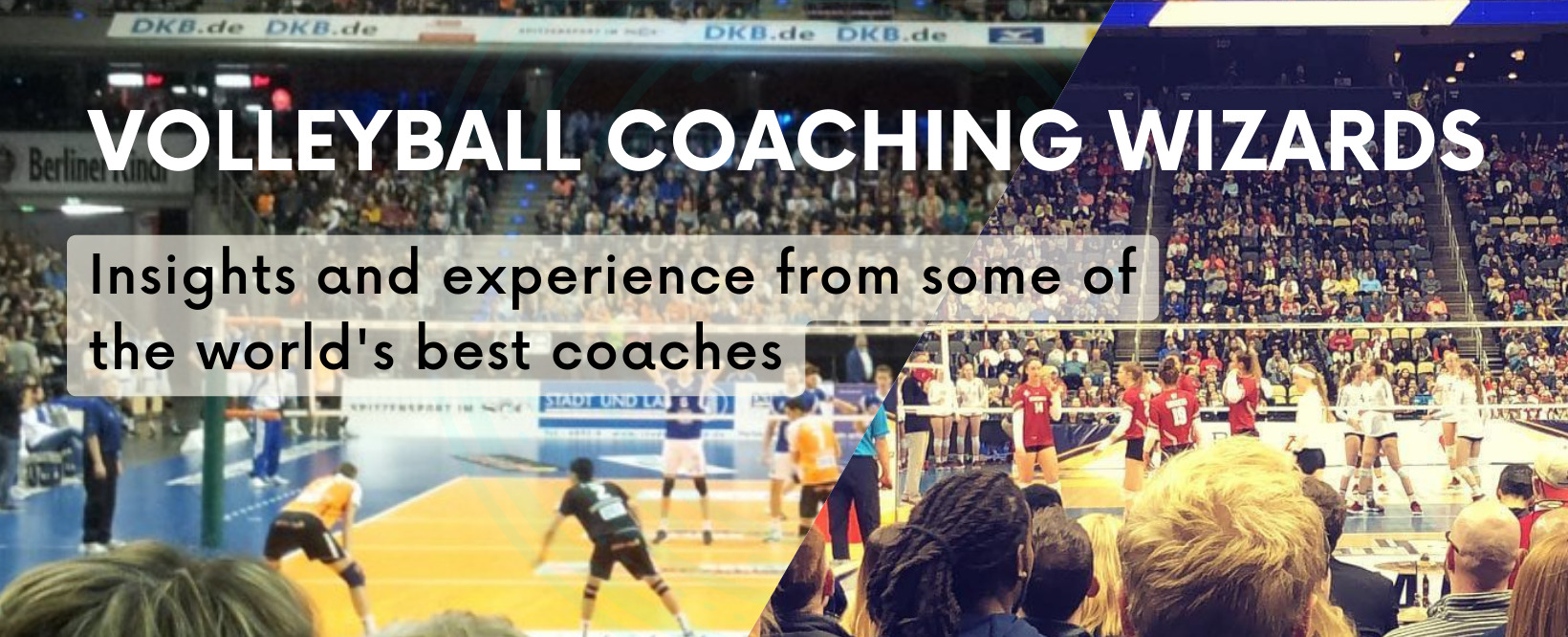A couple of things motivated this post.
The first is a quote from the 2nd Wizards book sent to John by Jan Maier. At the time, Jan was the head coach for the Hamburg team in the German women’s 2nd division (2.Bundesliga Nord). Jan texted the following.
“They (coaches) should be judged on their impact and influence.” love that! More people should read at least that introduction.
This is part of the philosophy we express in the book with respect to coaching excellence.
The other motivator is a post by Jim Dietz, a junior college and juniors coach. Jim also has experience in the USA Volleyball High Performance program (now National Team Development Program). His post includes commentary on what he sees as the arrogance of that program’s staff coaches with respect to coaching level. Here’s what he had to say (bold is Jim’s).
I got tired of hearing coaches talk about how they were unjustly assigned to a young age group or a lower skilled group–that the kids they were assigned were beneath them as a D-1 or elite club coach. Speaking up to argue that assertion once, I was told my club isn’t known and I’m a juco coach, so my opinion counts for zero. Yikes. But it gets worse. Worse is the attitude towards coaching colleagues who cannot further that coach’s march up the illusory career ladder. Yeah, I coach at a juco…I suck. Yeah, she’s a high school coach/teacher…if she knew anything, she’d be a 17-elite club coach, she sucks, too,…blah, blah, blah.
Jim is not the only one to express this sort of view. John has definitely heard about this kind of arrogance from others with experience in the HP program, and it’s something that turns off would-be participants. You’ll notice Jim’s use of the past tense to start the quote above, speaking exactly to that issue (If you read the post you’ll find that Jim speaks to the same type of “coaching niche” concept as that mentioned by Wizard Mike Lingenfelter in his interview).
And you know which coaches have those egos and attitudes? It’s the ones with the least justification for doing so. We’re talking about coaches with limited experience and little in the way of perspective – probably mostly younger males, to be honest. They think the level of play of their teams has anything to do with their coaching quality.
Guess what? It’s probably completely unrelated.
Returning to the quote from Jan above, how much impact and influence have these coaches had? Not very much is the answer.
Note that this isn’t just a problem with USAV High Performance, though. Anywhere you have the perception of something as a higher or more “elite” level of coaching you run the risk of this sort of mentality expressing itself. And to be fair, sometimes the perceptions of those not included add fuel to this fire. You can hear experienced, successful high school coaches acting overly deferential to college coaches just because they are college coaches. It’s foolish, but it happens.
One of the features of the great coaches we’ve interviewed is respect and humbleness. Naturally, disagreements about the finer points of coaching happen. A common theme of the Wizards interviews, though, is the sense that there is still a lot to learn, and that learning can come from all different sources. A Wizard respects other coaches, regardless of competitive level or experience. Even more, they are eager to hear what those with more or different experience from themselves have to say. Neither ego nor arrogance is a factor.

If my blog wasn’t clear enough, *every* belittling comment was from a male coach–but not all were young. The older coaches were with “known” programs who wanted to impress less-experienced coaches with being a director at such-and-such a club.
I just want to make sure it’s clear that the majority of HP coaches are there for the right reasons. It’s the unfortunate bad ones who get in the way and discourage new coaches from participating.
Thanks for the reply Jim. It’s sad how full of themselves some people are. – John